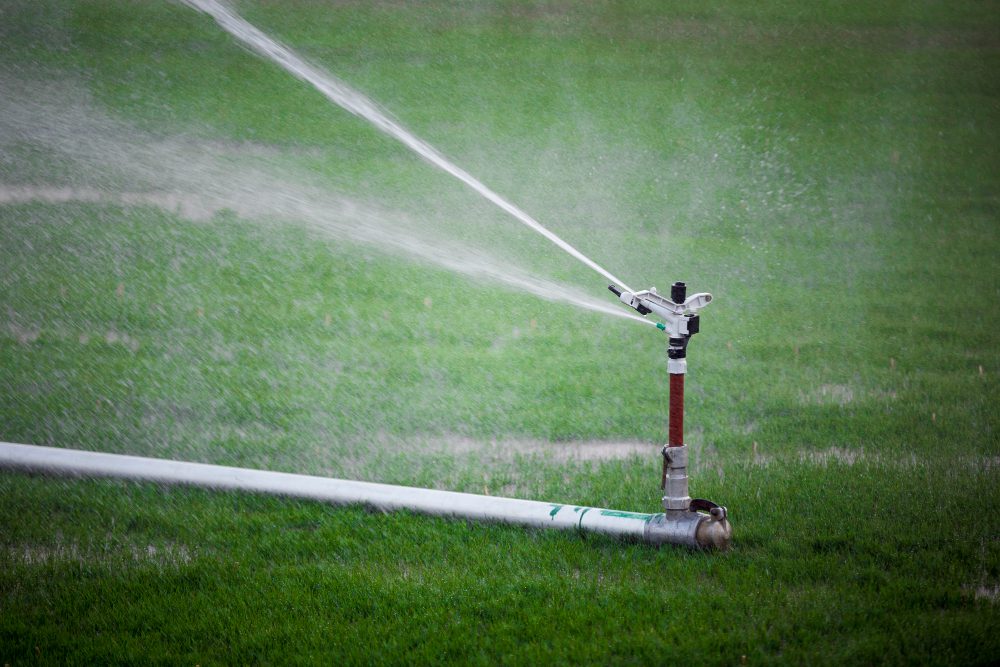
Beneath the sprawling fields and lush orchards of modern agriculture lies a complex network of vital infrastructure often overlooked. Pipes for irrigation, a vital component of farming, ensure crops receive the life-sustaining water they need to flourish. This hidden network of pipes, pumps, and valves forms the backbone of irrigation systems, playing an indispensable role in global food production. Let’s learn about the fascinating world of agricultural irrigation pipe systems, highlighting the crucial role of steel, and see how they nourish the world’s food supply.
Delicate Balance – Components of a Farm’s Water Delivery System
A farm’s irrigation network is a meticulously engineered system, where each component contributes to efficient water distribution. Powerful pumps draw water from diverse sources like wells, rivers, and reservoirs, while valves act as gatekeepers, regulating flow and ensuring water reaches precisely where it’s needed most. Sprinklers and emitters disperse water in a controlled manner, mimicking natural rainfall, and filters remove impurities, guaranteeing the water is clean and safe for crops. This interplay of technology and engineering is the foundation of modern irrigation’s effectiveness.
Tailored Pipes for Optimal Irrigation – Choosing the Right Fit
Selecting the right pipes for irrigation is a critical decision influenced by numerous factors, including the scale of the operation, specific crop needs, and terrain characteristics. Common types of agricultural irrigation pipe include PVC, polyethylene, and steel, each with distinct advantages and trade-offs.
- Steel Pipes: Renowned for their durability and longevity, steel pipes are often the preferred choice for large-scale agricultural irrigation systems. Their ability to withstand extreme conditions and resist corrosion makes them a sound long-term investment.
- PVC Pipes: These lightweight and economical pipes are well-suited for smaller farms and simpler irrigation setups.
- Polyethylene Pipes: Known for their flexibility, polyethylene pipes are ideal for uneven terrain and can withstand high pressure.
Steel – The Gold Standard for Agricultural Irrigation Pipe
Among the various materials for pipes for irrigation, steel stands out as the industry benchmark for agricultural irrigation pipes. Its inherent strength and resilience make it the ideal choice for the demanding conditions found on farms. Steel pipes can withstand high pressure, resist damage from pests and machinery, and endure extreme temperatures, ensuring a reliable and consistent water supply to crops. Additionally, their extended lifespan and minimal maintenance requirements offer a cost-effective solution over time.
Precision in Pipe Sizing – Ensuring Efficiency with Pipes for Irrigation
The diameter of an agricultural irrigation pipe significantly impacts water delivery efficiency. Undersized pipes for irrigation can lead to inadequate water pressure, compromising irrigation effectiveness, while an oversized pipe results in wasted water and energy. The optimal pipe size is determined by factors like the required flow rate, the distance the water needs to travel, and the type of irrigation system in use. Consulting with an irrigation specialist is essential to selecting the appropriate pipe size for your specific agricultural needs.
Steel’s Versatility in Agriculture – Beyond Water Delivery
The applications of steel pipes for irrigation extend far beyond irrigation. They are used to construct robust frameworks for greenhouses, protecting crops from the elements and creating optimal growing conditions. In livestock operations, steel pipes find use in fencing, water troughs, and other essential structures. Their versatility, combined with exceptional strength and durability, makes them an indispensable asset across the agricultural sector.
Thrive in Agriculture with Bison Pipe
Pipes for irrigation are the backbone of modern agriculture. Partnering with a company that understands the unique needs of the industry is essential for success. Bison Pipe is dedicated to providing top-quality steel pipe solutions that empower farmers and agricultural businesses to optimize their operations. Our commitment to innovation, durability, and sustainability makes us the ideal partner for your irrigation needs. Let Bison Pipe help you build a thriving and resilient agricultural future. Contact us today to discuss how our expertise and solutions can benefit your irrigation system.

